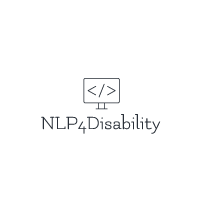About the Workshop
Building on the success of the inaugural NLP for Disability workshop, the Second Workshop on Natural Language Processing (NLP) for Disability aims to continue advancing accessibility-focused NLP research and technology. This workshop will serve as a platform for researchers, developers, and advocates to explore innovative NLP solutions that can empower people with disabilities in various ways, from enhancing communication and interface accessibility to supporting cognitive and sensory assistance. Key focus areas will include multilingual representation, inclusive design, and the development of evaluation standards that measure accessibility and usability for all. We welcome interdisciplinary contributions and encourage collaboration to drive impactful research that broadens the reach of NLP across abilities, languages, and regions.
Goals:
- Showcase innovations in NLP that specifically address challenges faced by people with disabilities and demonstrate new approaches to accessibility through NLP.
- Promote the development of NLP solutions that support non-English languages and diverse cultural contexts, enabling broader accessibility.
- Share methodologies for adapting NLP systems to meet the diverse needs of users with disabilities, emphasizing feedback-driven, user-centric design.
- Discuss and establish metrics to assess the effectiveness of NLP technologies in accessibility, ensuring systems are evaluated on their utility and inclusivity.
- Build partnerships across countries and languages, encouraging the formation of cross-disciplinary and international research teams focused on NLP for disabilities.
